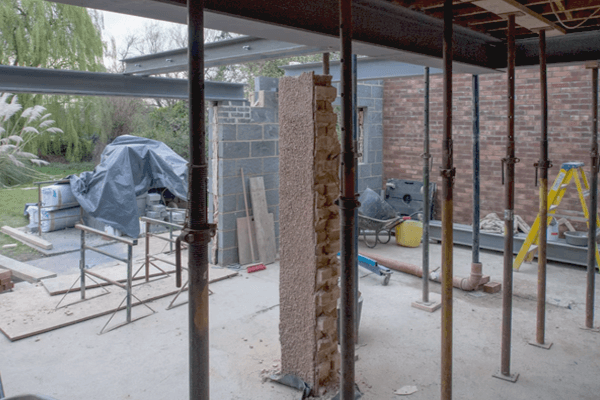It’s no secret that home improvement can be costly. But what you may not know is that some projects don’t add any value to your home. In fact, they might even lower the value of your property. Here are 10 examples of home improvement projects that are best avoided if you’re looking to increase the value of your house.

1. Adding A Swimming Pool
Swimming pools are a popular home improvement project, but they often don’t add value to your home. In fact, they can actually lower the value of your property. Swimming pools are expensive to install and maintain, and they can be a hassle when it comes time to sell your house. If you’re looking to increase the value of your home, skip the swimming pool and invest in another renovation project instead.
2. Over-The-Top Luxury Finishes
Designers and homeowners alike are always looking for the next big thing. When it comes to home improvement projects, they may be willing to put their money where their mouth is in order to get that “wow” factor. But sometimes those design decisions can actually have a negative effect on your property value.
Adding outrageous finishes such as marble countertops, gold-plated faucets and luxury flooring can actually make your home less desirable to potential buyers. If you’re looking to increase the value of your home, stick to more neutral, high-quality finishes that will appeal to a wider range of people.
3. Adding A Home Theater
Home theaters are another popular home improvement project that often doesn’t add value to your home. While the idea of a home theater may sound nice, they actually take up a considerable amount of valuable space, space that can serve a more functional purpose.
If you have your heart set on an in-home theater experience, it may be better just to have a large screen installed in a finished basement accompanied by comfortable seating.
4. Excessive Landscaping
When it comes to landscaping, less is truly more. Going overboard on landscaping can actually have a negative effect on the value of your home. Many prospective buyers will see this as a deterrent as it will require a lot of time, effort and money from them to keep it up.
Adding things like elaborate ponds, expensive hardscaping and excessive plantings can be a waste of money. Not only are they costly, but they also take up valuable space that could be used for other purposes. Stick to simpler, more understated landscaping to avoid this pitfall.
5. A Gourmet Kitchen
Kitchens are often considered the heart of the home. And when it comes to home improvement, many people want to upgrade their kitchen with top-of-the-line appliances and finishes. But while a gourmet kitchen may be appealing to you, it’s not always appealing to potential buyers.
While kitchens are a big factor for many buyers, spending an astronomical amount of money on a chef-inspired gourmet space may not provide the same return when trying to sell. This is especially true when spending money on extravagant things such as an industrial-style stove or a built-in fire-burning pizza oven.
6. Overbuilding The Neighborhood
When completing renovations, especially if adding an addition or altering your home’s structure, it is important to consider your surroundings. A quick way to spend money without adding any real value to your home is by overbuilding your neighborhood.
What this essentially means is that you are building a home that is much nicer, more expensive and in most cases, much larger than the homes around you. This can be a big turnoff for potential buyers as it makes your property stick out like a sore thumb.
If you’re looking to increase the value of your home, try to stay within the same general aesthetic as your neighbors. This will make your home more desirable to buyers and ultimately lead to a higher sale price.
7. Unseen Improvements
Many times unseen improvements are necessary, however many times the saying “out of sight, out of mind” applies. Since homeowners and buyers can’t actually see the improvement, they don’t always consider it all that valuable.
This is often the case with home improvement projects such as a new roof, windows, furnace or air conditioning system. While these are all necessary improvements, they don’t add any visual appeal to the home and are often overlooked by homeowners and buyers alike.
In order to avoid this, focus on projects that will be seen and appreciated by all. Things like a new coat of paint, updated flooring or a well-manicured front lawn are always a good investment.
8. Putting In A Wine Cellar
A wine cellar is a luxurious addition to any home, but it’s not always the most practical. Not only do they take up valuable space, but they can also be quite expensive to install.
Unless you’re a serious wine collector with a large collection, a wine cellar may not be the best use of your money. Instead, try investing in a wine fridge or storage unit to keep your collection safe and sound.
9. Converting An Attic
Unless your home is hard-pressed for space, and your attic is a generous size, an attic conversion won’t offer much in the way of ROI (Return on Investment). In most cases, it’s not worth the time or money to convert an attic into a livable space.
Attic conversions are often expensive, and the added living space is rarely enough to justify the cost. Additionally, many people don’t like the idea of living in an attic. It can be cramped, uncomfortable and lack natural light.
If you’re looking for extra living space, there are much better ways to spend your money. Try converting a basement or garage into a livable space instead.
10. Removing A Bedroom
Even if it means opening up your floor plan, very rarely does removing a bedroom from a home provide any value. It is often the opposite, negatively affecting the property value.
Many empty-nesters or even first-time homebuyers find themselves in a home that has more bedrooms than they actually need. However, before you go knocking down walls, bedrooms are one of the largest influencing factors on home value and by taking one away you can be taking away from the future asking price.
Unless you are absolutely sure that you will never need the extra bedroom, it is best to keep it intact and focus on other projects.
While some home improvement projects are definitely worth undertaking, others may not provide the return on investment that you’re hoping for. Before starting any project, it’s important to do your research and make sure that you’re aware of the potential consequences and how, if at all, the value of your home will be affected.
